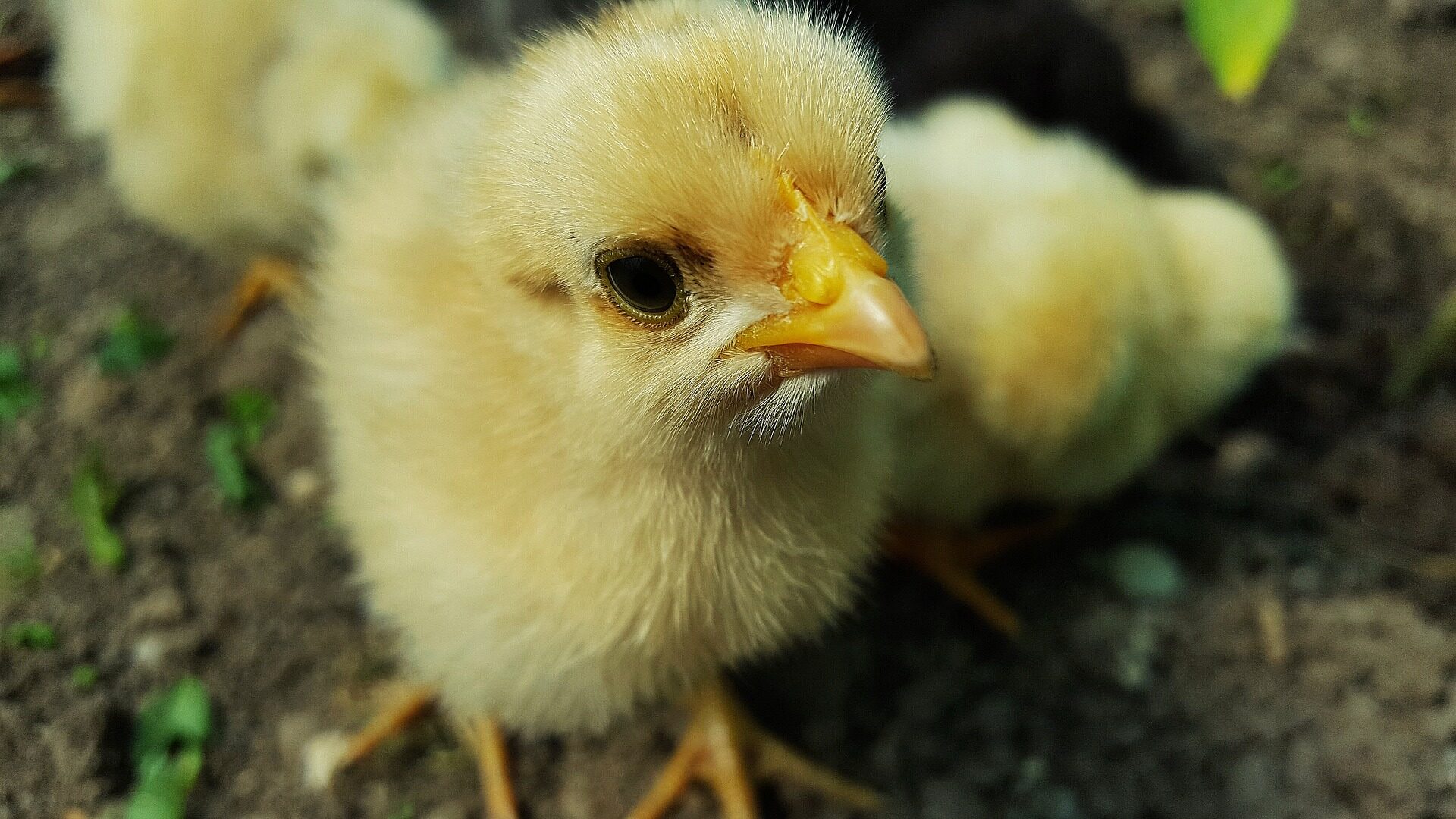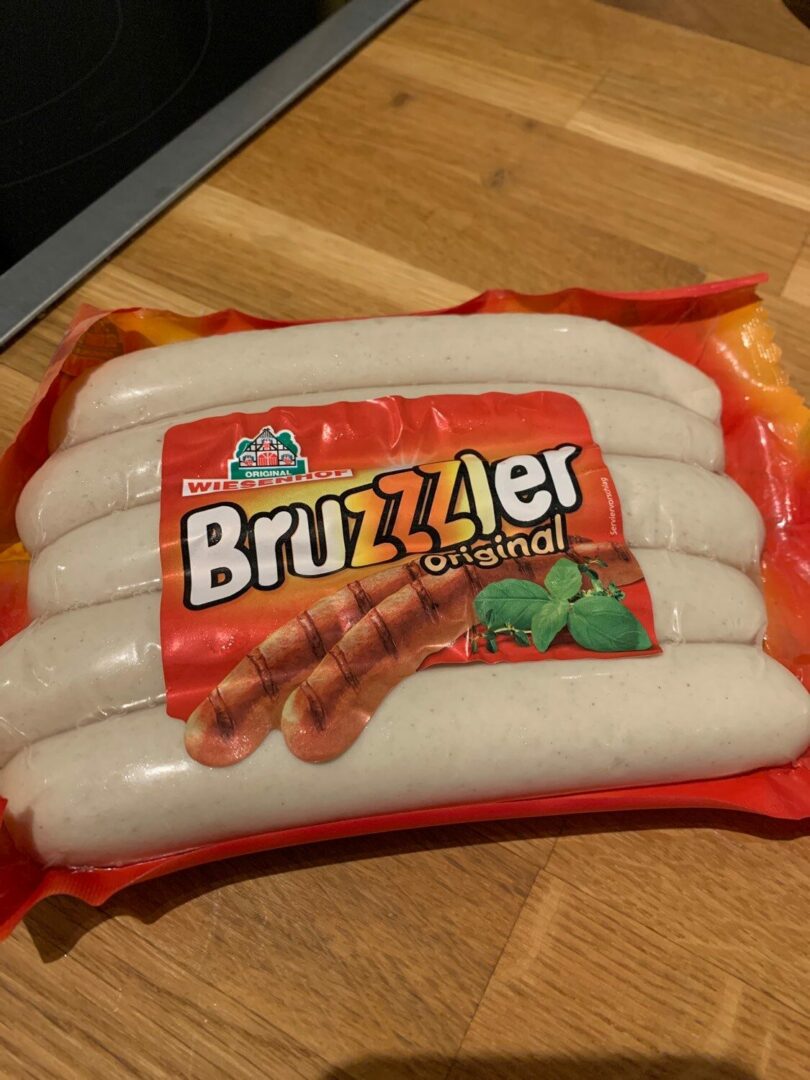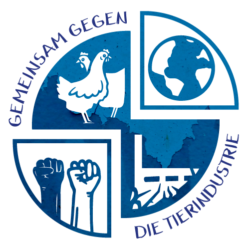
The PHW Group is the largest poultry meat company and the fourth largest meat group in Germany.¹ 4.5 million chickens are killed every week for the Group.² In addition, PHW is a leading supplier of animal feed and vaccines for animals and also kills and markets turkeys and ducks. With its product Bruzzzler (poultry sausage), Wiesenhof (the market leader in poultry meat in Germany) is one of the Group‘s best-known brands. The administrative headquarters are located in Rechterfeld (municipality of Visbek) in Lower Saxony and the company headquarters are in Lichtenstein. In the 2018/2019 financial year, total sales of 2.687 billion euros were made, 1.4 billion euros of which with the Wiesenhof brand alone.³
Company structure and production strategy
The PHW Group has numerous subsidiaries that operate, among other things, slaughterhouses, hatcheries, compound feed plants and shipping companies. The PHW Group includes:
– 6 hatcheries with parent stock management
– 5 compound feed plants
– 12 slaughterhouses and processing plants

The chicken, turkey and duck fattening facilities are in most cases operated by formally independent “farmers”. However, these are only contract fatteners; by signing the contract, they enter into a close relationship with the Group and give up any autonomy. The “farmer” is completely dependent on the Group: from the delivery of chicks from its hatcheries through to feed from its feed factories and veterinarians provided by PHW for the approval and processing of the slaughtered animals by PHW, the fattener is practically just a “supervisor” who ensures that the chickens are fattened up to the agreed slaughter weight when the animal transporter arrives after 30-42 days. PHW imposes all the essential regulations for production. The contract fatteners are subject to all the risks: they finance their barns, bear the production risk and are used as scapegoats in the event of scandals. Responsibility for what happens in the fattening systems is shifted to the fatteners. This means that PHW keeps a clean record and avoids any criticism regarding compliance with animal welfare standards.4
International investments
The PHW Group also invests in the poultry meat business outside of Germany. In Poland, the Group participates in Drobimex5 and Bomadek,6 in Bulgaria in the Ameta Group and in the Netherlands in Esbro.7 In the 2018/19 financial year, the Polish, Bulgarian and Dutch holdings contributed towards around 550.3 million euros of total sales (previous year 523.5 million euros).8
The PHW boss Peter Wesjohann justifies the involvement in Poland with lower wage and construction costs as well as lower animal welfare and environmental protection regulations with: “They have the greatest advantage of a stocking density of 42 kg/m². We in Germany are only allowed to hold 39 kg/m²”.9
Opening of new markets
Vegetarian and vegan products are also offered under the Wiesenhof brand. Since 2018, PHW has been investing in so-called alternative protein sources by supporting or buying up several startup companies that research, develop or market vegetarian, vegan and insect meat products. Since 2018, it has also been investing in the Israeli startup SuperMeat, which develops artificially produced chicken meat from the laboratory. 10
This is by no means due to a newly discovered social streak in the company. Rather, large profits can be generated in these sales markets, and it is also possible to revamp the external image and contribute towards creating a better world in the eyes of the public. However, it has been proven that the needs of humans, animals and the environment do not play a role for the company; PHW still profits from corpses.
Self-portrayal under criticism: scandals at PHW
The Group‘s self-chosen guiding principles are “working for a better life” and “responsibility for people, animals and the environment”. On its own homepage, the company also advertises the following guidelines for more sustainability, climate protection and social responsibility:
• Think ecologically and sustainably
• Act responsibly
• Maintain open communication
• Security and trust for the customer
• Appreciation and respect for the employee
The reality, however, is clearly different: scandalous images from suppliers appear time and again in the media, which document the enormous suffering of animals at the hands of the company. It was also revealed that workers from Eastern and Southeastern Europe are exploited under catastrophic conditions and that ground and water supplies are being plundered. The PHW Group was also confronted with allegations of subsidy fraud, tax evasion and illegal price riggingfixing. Last but not least, the Group, like the entire meat industry, has been criticised for corona outbreaks since April 2020 and is responsible for numerous infections in its own slaughterhouses and processing plants.
The individual scandals of the PHW Group, including the Wiesenhof brand, are summarised in an annual chronicle below:
2007 – Involvement in the BSE scandal and an underground hourly wage:
Foodwatch filed a criminal complaint against the managing director of the PHW subsidiary GePro. The accusation at the time was that in 2005, GePro is said to have illegally supplied animal meal from slaughterhouse waste of BSE Risk Category III to non-EU countries. Ultimately, the investigation was discontinued due to a lack of sufficient suspicion. 11
In July, the ZDF magazine Frontal21 reported on poor working conditions and wages at Wiesenhof. Labour migrants from Poland only received €3.50 per hour.
2008 – Violation of the Animal Welfare Act:
The Stade public prosecutor‘s office investigated Lohmann Tierzucht GmbH, a company belonging to the PHW Group, after the animal rights organisation Peta had reported the breeding company for mutilation and violation of the Animal Welfare Act. The allegation were that for years, the company had cut combs and amputated toes on baby chicks. In addition, male chicks that were “unusable“ for breeding were gassed with carbon dioxide and shredded en masse. The court, investigators and lawyers finally agreed that the Lohmann company should pay a fine of 100,000 euros, and would refrain from trimming the combs and toes in the future.12, 13
2010 – Animal suffering in the chicken farms:
The ARD political magazine Report Mainz uncovered serious animal protection violations in a chicken farm in Lower Saxony. The PHW Group distanced themself from the responsible employees and external companies. 14
2011 – Systematic animal suffering and poor hygiene:
The allegations of previous years were proven again by the ARD report “The Wiesenhof system – How a poultry company exploits animals, people and the environment”. Here, footage that was verifiably recorded by animal rights activists in a PHW establishment was able to confirm the allegations. 15
According to a report by the news magazine Stern, hygienic deficiencies were discovered in a poultry slaughterhouse in Möckern in April 2011. According to Stern also claimed that there were several export bans for poultry. Continuous black mold infestation was discovered on the walls and ceilings. The responsible veterinary inspector could not guarantee flawless and hygienic slaughter, and there was talk of contamination of the carcasses with gastrointestinal content. There were also violations in the refrigeration of the carcasses. It was also criticised that the permitted slaughter rate was exceeded. 16
2012 – Subsidy fraud and water pollution:
The Oldenburg public prosecutor‘s office investigated suspected subsidy fraud. The accusation was that PHW is said to have received export subsidies for years without the necessary EU approval notices. 17
In Königs Wusterhausen in Brandenburg, PHW operates a slaughterhouse near a water protection area. By chance, a local resident discovered a pool of blood the size of a pond in the forest. The cause was three leaks in pipes coming out of the slaughterhouse. The bloody water had been running out of the pipes for at least a year. The environmental impacts have not yet been fully clarified. 18
2013 – Poor working conditions and chickens beaten to death:
In June 2013, a complex network of rapidly changing work contractors and temporary employment agencies was discovered in the vicinity of the PHW subsidiary Geestland in Wildeshausen, which employed migrant workers from Romania, Bulgaria and Vietnam under very unfavourable conditions (three-month contracts, €0.23 wages per cut-up turkey). Contract workers were housed in mass accommodation (up to 15 beds per room). Unwanted confidants were apparently greatly intimidated. 19
As Stern TV reported at the beginning of September 2013, weak animals were discarded at a Wiesenhof supplier in Bavaria. The allegations are based on film recordings by the animal welfare organisation “Soko Tierschutz“ which showed, among other things, sick animals lying in the barn, the farm owner throwing a flapping animal into the dumpster and a farm employee trying to beat a struggling animal to death against a bucket.20
2014 – The suffering of the ducks:
In December 2014, activists from the animal rights organisation Animal Equality filmed terrifying conditions in a duck fattening facility operated by Neuhardenberger Entenmast GmbH in Letschin, Brandenburg. The fattening farm supplies PHW with one million ducks a year. In the video recordings, which were published in many different media, you can see some ducks lying on their backs and no longer able to get up, while others are badly injured and bleeding. The recordings also show employees walking through the facility with pitchforks and killing the seriously ill ducks. In addition, there is no place to be seen in the recording where the aquatic animals can swim or bathe21
2016 – Mass layoffs after a fire in the slaughterhouse, mockery of a victim of sexual violence and the shredding of duck chicks:

In April 2016, Romanian wage and contract workers were dismissed after the fire in Lohne. All large slaughterhouses in the region rely on subcontractors. They then send their own workers to do certain tasks such as packing chicken meat. If production stops, as what happened after the devastating fire, the company can simply terminate the subcontractor at short notice – Wiesenhof doesn‘t have to worry about what happens to the employees. 22
In an advert for poultry sausages by Bruzzzler, Atze Schröder, who likes to allude to penises with sausages, spoke the following words into the cameras: “So, are you ready for the biggest sausage of the summer? Here’s the thing: afterwards, Gina and Lisa have to go to trauma therapy first.“ These words refer to a rape allegation from 2012 by Gina-Lisa Lohfink (known from Germany‘s Next Top Model).23
Video material from undercover investigations showed, among other things, how duck chicks in the PHW hatchery in Wriezen (Brandenburg) that were not profitable are shredded while fully conscious.24
2017 – Illegal employment, price rigging and huge animal suffering in parent fattening farms:
The managing director of the PHW subsidiary “Geestland Putenspezialitäten“ (Geestland Turkey Specialties) and the former commercial director of PHW were charged by the Oldenburg District Court for the illegal employment of 800 workers. 25
In Düsseldorf, lawsuits were brought against the PHW Group and three other meat companies who illegally negotiated their sausage prices with one another. Fearing that the lawsuit could result in even higher fines for PHW, the company withdrew its objection at short notice and accepted the fine.26
The animal rights organisation ARIWA published pictures and video material from parent animal farms of WIMEX GmbH in Saxony-Anhalt. WIMEX is Europe‘s largest supplier of broiler chicks and a subsidiary of the PHW Group. In addition to many injured and dead chickens, it could be observed that the feed belt was only switched on for one hour a day. 27
2018 – Low wages, catastrophic water consumption and illegal slaughter volumes:
In Oldenburg, the managing director of a Bulgarian work contract company stood before the district court. Between 2009 and 2010, the defendant had put contract workers with a German intermediate company, which in turn made the workers in the PHW slaughterhouse in Lohne slave away. The workers saw only half of the hourly wage of eight euros, and of these four euros, they also had to pay the cost of their accommodation! The accused managing director avoided the process and was able to achieve a statute of limitations. 28
The nature conservation association NABU accused the PHW Group of having extracted more water than allowed from the groundwater wells at the slaughterhouse in Lohne, and thus drying up the entire region. 29
In Königs Wusterhausen, PHW slaughtered significantly more chickens than permitted but was not intimidated by fines. 30
2020 – Investigation recordings from fattening facilities and the corona outbreak in the slaughterhouse
Investigation recordings in a PHW chicken fattening facility in Zernsdorf (Brandenburg) showed an employee breaking the neck of chickens without previously anesthetising them. There were also carcasses lying around being pecking at by other animals. 31
Workers at the PHW slaughter factory in Bogen (Bavaria) tested positive for corona. The requirements for corona protective measures for the workers in slaughterhouses, which unions and labour rights initiatives had put forward in an open letter just a few weeks earlier, were ignored by the meat industry. 32, 33
46 workers at a PHW turkey slaughter factory in Wildeshausen (Lower Saxony) tested positive for corona. 1,100 workers and their immediate family members had to be quarantined for two weeks. The slaughter factory was temporarily closed. Since this location is PHW‘s only turkey slaughterhouse, it was initially unclear what would happen to the turkeys. The turkeys were getting heavier from day to day and the space in the facilities was already needed for the next group. “The situation clearly shows how sick the animal production system is through and through“, criticised a spokeswoman for the animal rights organisation Animal Rights Watch (ARIWA). 34, 35
There was also a major corona outbreak at Wiesenhof‘s largest chicken slaughter factory in Lohne (Lower Saxony). Out of 1,046 employees, 66 tested positive for Covid-19. The workers suffering from corona and their contact persons were sent to quarantine. The company was not closed.36 Within the following week, 12 more workers tested positive. The renewed infections did not lead to the closure of the company, either.37
Similar scandals can also be observed at all other large meat companies.
With this in mind, it should not be forgotten that the animal industry is always associated with the destruction of nature, climate change and the disregard for basic animal needs. The exploitation of humans, animals and the environment are direct consequences of capitalist relations of production, which do not serve to satisfy needs and instead follow the necessities of progressive capital accumulation. Capitalism, like the animal industry, must be abolished.
